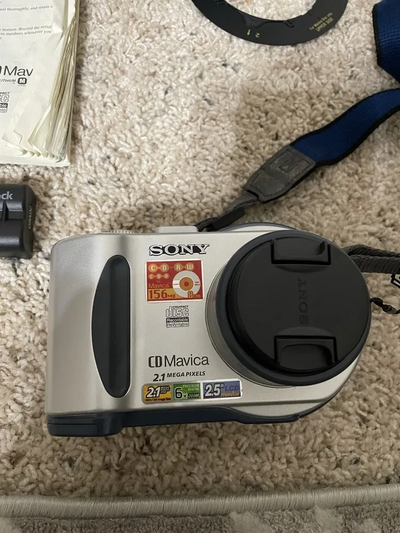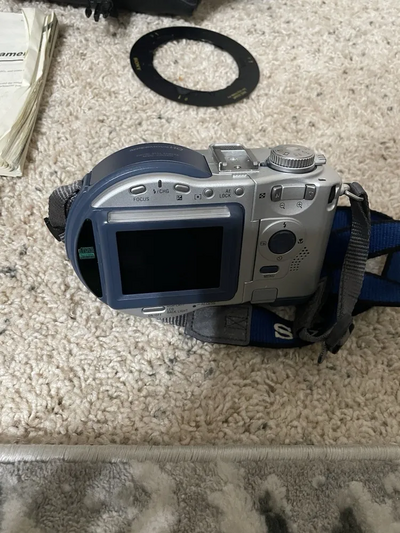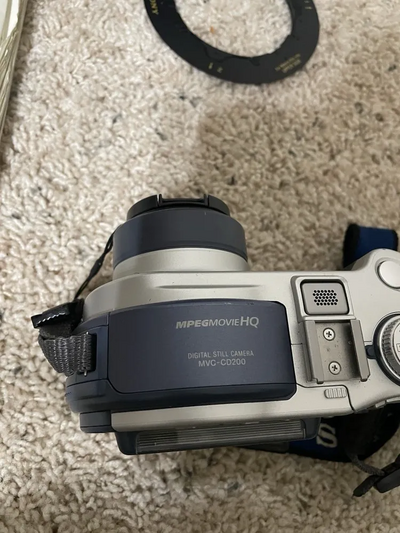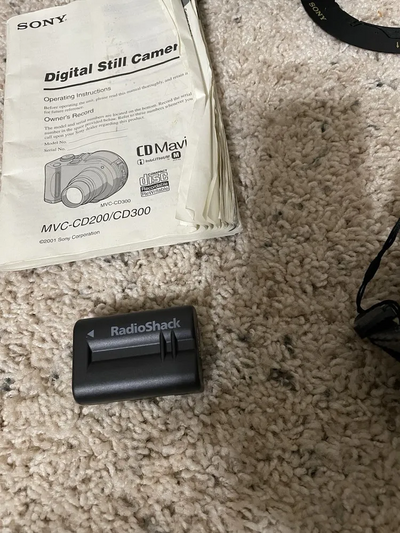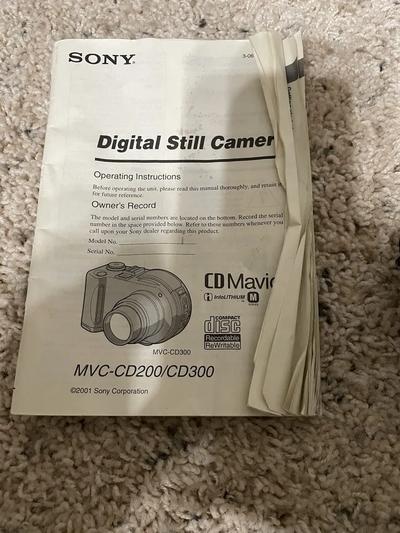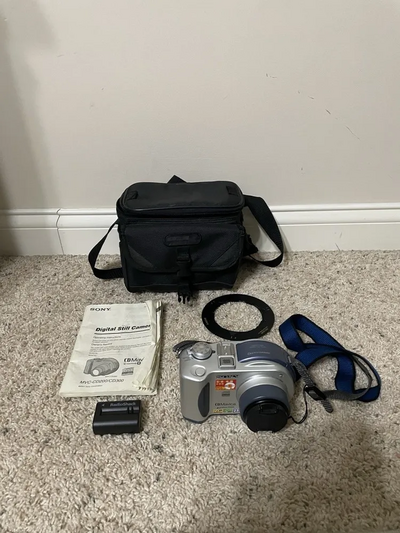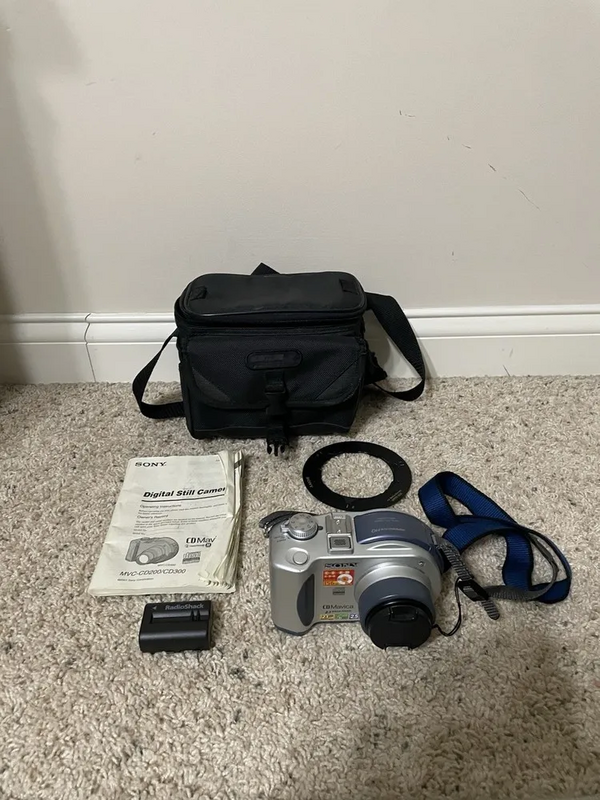
Sony Mavica
| Brand | Sony 1997 |
| Model | MVC-FD5 |
| Released Year | 1997 |
| Type | DSLR Cameras |
| Series | Mavica |
| Color | Silver |
| Optical Zoom | 6x |
| Status | Discontinued |
Quick view
Overview
The Sony Mavica MVC-FD5 was released in 1997 as part of the pioneering Mavica digital camera series. It featured a 0.4-megapixel CCD sensor capable of capturing VGA resolution images (640x480 pixels). The camera used 3.5-inch floppy disks as a unique storage medium, allowing for easy image transfer to computers without additional cables. It offered optical zoom and a 2x digital zoom feature. The MVC-FD5 had a built-in LCD screen for image preview and playback. Power was supplied via standard AA batteries, enhancing portability and ease of use.
Specifications
| Digital Zoom | 6x |
| Screen Size | 2.5 in |
| Color | Silver |
| Series | Sony Mavica |
| Type | Digital SLR |
| Manufacturer Warranty | None |
| Model | Sony Mavica |
| Optical Zoom | 6x |
| Charger Included | No |
| Features | Date/Time Stamp |
| Country/Region of Manufacture | Japan |
| Device Type | Digital Camera |
| Image Sensor | 0.4 Megapixel CCD |
| Maximum Resolution | 640 x 480 pixels (VGA) |
| Storage Media | 3.5-inch Floppy Disk |
| Zoom | Optical Zoom + 2x Digital Zoom |
| Display | Built-in LCD Screen |
| Power Source | AA Batteries |
| Release Year | 1997 |
| Discontinued | Yes |
Images
Key Advantages
The Sony Mavica MVC-FD5 provided the convenience of floppy disk storage which simplified image transfer and archiving. Its VGA resolution was adequate for casual photography at the time. The inclusion of optical zoom enhanced framing flexibility. The built-in LCD allowed users to preview photos immediately, improving the shooting experience. The use of widely available AA batteries made power replacement easy in various environments. Compact design made it convenient for on-the-go photography.
Limitations
The MVC-FD5 had a relatively low image resolution by modern standards, limiting print quality and detail. The floppy disk storage was slow and had limited capacity, restricting the number of photos per disk. There was no built-in flash, which constrained low-light shooting capability. The camera lacked advanced exposure controls and manual settings, limiting creative flexibility. Battery life was moderate and depended heavily on frequent AA replacements. The digital zoom degraded image quality, and the overall sensor sensitivity was low compared to contemporary standards.
FAQ
What type of storage does the Sony Mavica MVC-FD5 use?
The MVC-FD5 stores images on 3.5-inch floppy disks, providing unique and removable storage media for easy image transfer.
What is the image resolution of the Sony Mavica MVC-FD5?
The MVC-FD5 captures images at VGA resolution, which is 640x480 pixels.
Does the Sony Mavica MVC-FD5 have a built-in flash?
No, the MVC-FD5 does not include a built-in flash for low-light photography.
What kind of batteries does the MVC-FD5 use?
The camera operates on standard AA batteries, allowing easy power replacement.
Can images be previewed on the camera?
Yes, the MVC-FD5 is equipped with a built-in LCD screen for image preview and playback.
Is the Sony Mavica MVC-FD5 still in production?
No, the MVC-FD5 was discontinued and is no longer manufactured.
What are the main limitations of the MVC-FD5?
Its limitations include low image resolution, limited storage capacity of floppy disks, lack of flash, and moderate battery life.
Disclaimer
The content on is provided for general informational purposes only. We do not guarantee the accuracy, completeness, or reliability of any information, specifications, or visuals presented on the site.
is not responsible for any content, images, or data uploaded or shared by users. Users are solely responsible for the content they submit.
We may include links to third-party websites for convenience. We do not endorse or take responsibility for the content or policies of any external sites.
Use of the site is at your own risk. Always verify critical information independently before making decisions based on content from this website.

